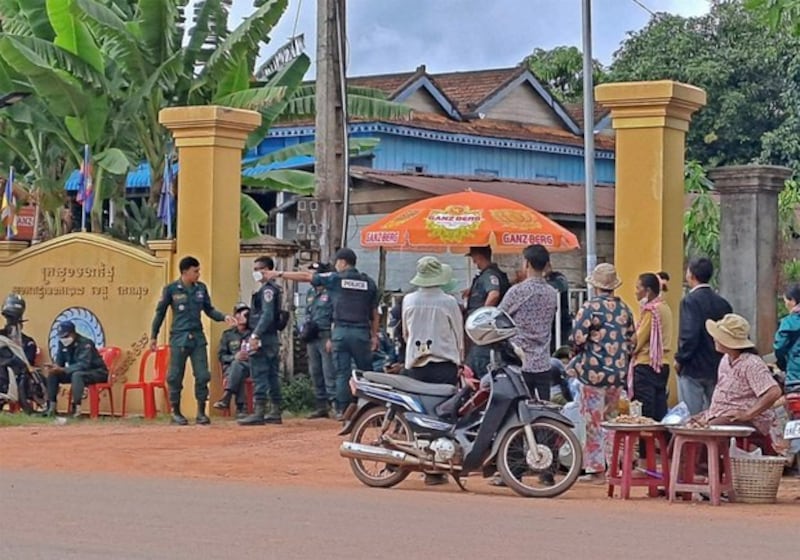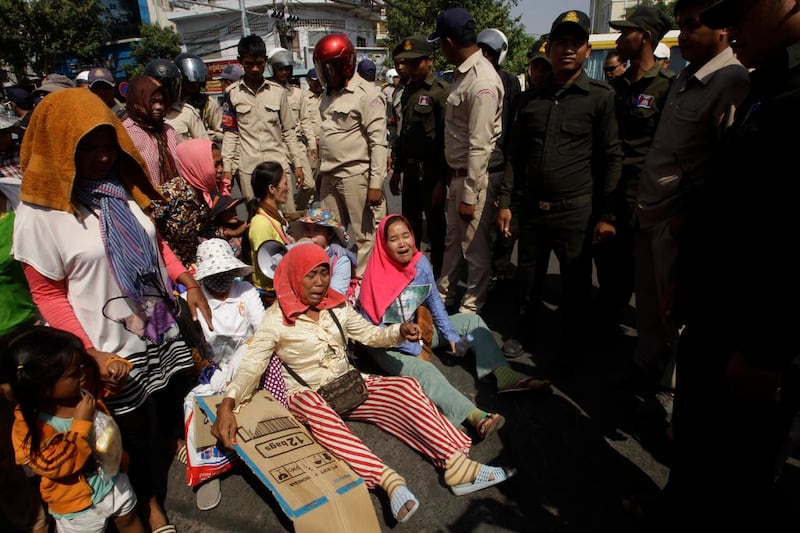About 200 villagers protested in southwestern Koh Kong province to demand a resolution to several long-running land disputes – some of which date back 20 years and involve powerful, well-connected Cambodian businessmen.
Illegal land grabs are common across Cambodia, where the government seizes land to give to companies, domestic and foreign, or to use for its own purposes. Officials also can be bribed to provide bogus land titles. Land disputes are a major cause of social disturbances throughout Southeast Asia.
Residents of three communities traveled to Koh Kong’s Srae Ambel district on Thursday for the demonstration, which was held as part of international Global Observance of Habitat Day.
“Please, Prime Minister Hun Manet, solve the land issue, and do not accuse land representatives like us of being instigators and defamers,” Det Hour, who lives in Srae Ambel, said during the protest.

Det Hour mentioned her dispute with tycoon Heng Huy in her remarks on Thursday. She said residents haven’t just lost their land to government concessions – in some instances, they have also lost their right to speak publicly.
“We are the real victims of the land, and I feel that we are losing a lot of freedoms today,” she said.
Last year, the Koh Kong Provincial Court sentenced 10 activists to one year in jail in a case that stemmed from several land disputes that have triggered protests.
They were also ordered to pay 10 million riel (about US$2,400) to tycoon Heng Huy. The activists were arrested in June 2023 after they tried to travel to Phnom Penh to submit a petition to the Ministry of Justice.
‘The government should take action’
Land disputes in the coastal province near the Thai border have had a devastating impact on hundreds of people who were already living in poverty, according to Yin Mengly of human rights group Adhoc.
“The government should pay more attention to this issue,” he said, adding that officials could review concessions to see if any unused land could be returned to residents.
“And any company that violated people’s rights, the government should take action in accordance with the contract,” he said.

Community representative Phav Nheng urged authorities to build roads in areas where the government has resettled people who were forced to move because of a government land concession.
“They compensate and settle only the land issue, but they provide no infrastructure and no clean water,” she said. “We cannot go to live there either.”
RFA was unable to reach Meas Sophorn, the prime minister’s spokesman, or Seng Lot, the spokesman for the Ministry of Land Management, Urban Planning and Construction, for comment on Thursday.
Translated by Sum Sok Ry. Edited by Matt Reed and Malcolm Foster.
